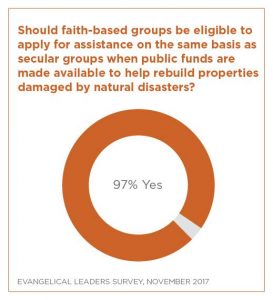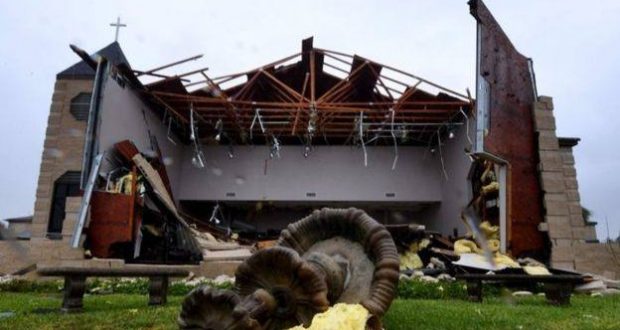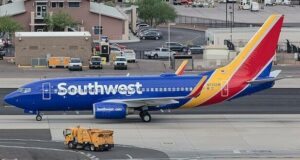Many churches and faith-based groups experienced property damage in the natural disasters of 2017. Nearly all American evangelical leaders (97 percent) think faith-based groups should be eligible to apply for FEMA assistance. They believe these groups are just as worthy as secular groups when public funds are made available to help rebuild properties damaged by natural disasters. The survey is according to the November Evangelical Leaders Survey.
 “Studies have shown the vast economic benefits that churches and other faith-based groups bring to their communities — through food banks, recovery programs, English language classes, childcare and more,” said Leith Anderson, president of the National Association of Evangelicals (NAE). “The government should help churches and other groups that are positively impacting the communities around them rebuild as quickly as possible. It will rebuild the entire communities more quickly.”
“Studies have shown the vast economic benefits that churches and other faith-based groups bring to their communities — through food banks, recovery programs, English language classes, childcare and more,” said Leith Anderson, president of the National Association of Evangelicals (NAE). “The government should help churches and other groups that are positively impacting the communities around them rebuild as quickly as possible. It will rebuild the entire communities more quickly.”
After lawsuits and a Supreme Court decision, the Federal Emergency Management Agency has issued a new policy extending disaster relief to churches, synagogues and other congregations.
Addressing a church-state separation issue, the agency’s latest policy guide says FEMA made the change so houses of worship aren’t considered ineligible “on the basis of the religious character or primarily religious use of the facility.”
It cites the June 2017 decision by the U.S. Supreme Court in Trinity Lutheran Church of Columbia v. Comer, in which the high court ruled 7-2 in favor of a Missouri church that claimed religious discrimination after it was refused state funds to improve its playground.
In FEMA’s previous guide, language deemed private nonprofits ineligible for aid if they primarily offered religious activities — including worship and religious instruction. That language has been removed from the policy guide released Tuesday (Jan. 2).
President Trump tweeted in September that Texas churches should be “entitled to reimbursement from FEMA” for aiding Hurricane Harvey victims. Texas officials followed up and asked him to change the FEMA policy so affected houses of worship could get rebuilding assistance.
FEMA was sued by three Texas churches damaged by Harvey. They challenged the previous FEMA policy, saying it “explicitly denies equal access to FEMA disaster relief grants for houses of worship solely because of their religious status.” Later, two Florida synagogues damaged by Hurricane Irma also sued FEMA.
“Better late than never,” said Daniel Blomberg, a lawyer with the nonprofit law firm Becket, which represents the Texas churches and the Florida synagogues. “By finally following the Constitution, FEMA is getting rid of second-class status for churches.”
On June 26, 2017, the U.S. Supreme Court ruled in Trinity Lutheran Church v. Comer that a government program of aid must be available to all without regard to religious character. In the fall, three churches impacted by Hurricane Harvey sued the Federal Emergency Management Agency (FEMA) for disqualifying churches from applying for certain relief available to secular groups.
“Faith should be neither a qualifier nor a disqualifier for assistance, just as unbelief should be neither a qualifier or disqualifier,” said Scott Arbeiter, president of World Relief, the NAE’s humanitarian arm.
Steve Lawson, executive director of the Advent Christian General Conference denomination, explained that after some of their churches helped those in their communities affected by natural disaster, they struggled to rebuild and recoup their own losses. “Financial assistance from the government to help rebuild would be most welcome,” he said.
Anderson added, “Churches are rightly cautious about strings that may accompany public funds. But the First Amendment offers robust protection to Americans of all faiths and none. It prohibits the government from favoring one religion over another, or from favoring secular groups over religious groups. Natural disasters do not discriminate on the basis of faith, and neither should the government.”
The Evangelical Leaders Survey is a monthly poll of the Board of Directors of the National Association of Evangelicals. They include the CEOs of denominations and representatives of a broad array of evangelical organizations including missions, universities, publishers and churches.
 Metro Voice News Celebrating Faith, Family & Community
Metro Voice News Celebrating Faith, Family & Community









